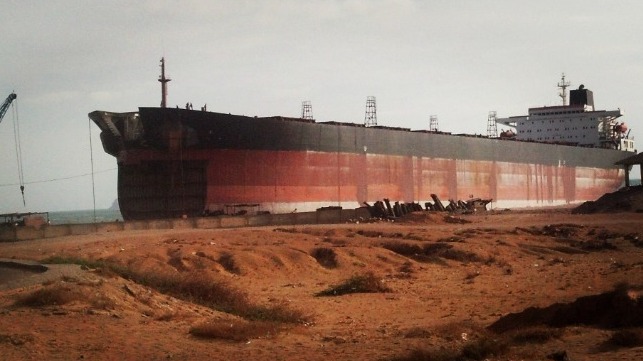VLCC Downturn Prompts Scrapping Boom

Supertankers transport about one-fifth of the global oil demand. But, with a fall in global consumption, many of these humongous tankers are scheduled to get beached in South Asian beaches in Pakistan, Bangladesh, and India to be blowtorched and sold for scrap.
Even though the vessel glut had been amplifying ever since COVID dampened consumer demand across the world, the real nail in the coffin for the supertanker industry was Saudi Arabia and other OPEC countries cutting down on production. One also needs to keep in mind that every five years, ship owners have to fund a thorough drydocking and class survey. This costs millions of dollars for the owners. When considering the viability of a supertanker, this becomes a significant factor.
Additionally, more tankers used for floating storage are coming back on the market. During the pandemic, nations stockpiled millions of barrels of oil. With major OPEC countries keeping millions of barrels of oil away from the market and consumption slowly gearing up to pre-pandemic levels, nations are using up their stockpiled oil, leaving supertankers idle.
“It is hard to imagine a set of circumstances that is more against tanker owners than the ones at the moment,” said Brian Gallagher, head of investor relations at Euronav NV, speaking to Bloomberg.

that matters most
Get the latest maritime news delivered to your inbox daily.
On the other hand, there are the attractive scrap prices that South Asian markets offer, which Gallagher noted. “When you have scrap prices at these levels that’s very attractive, it changes the dynamic for owners of older tonnage,” he said.
According to figures from the Baltic Exchange in London, daily earnings for supertankers sailing on the benchmark Middle East to China route were in negative territory, showing the extent of the market’s deterioration. The current rates may force many older ships to head for Alang, Chittagong or Gadani, because the situation for the tanker market isn't likely to improve anytime soon.
